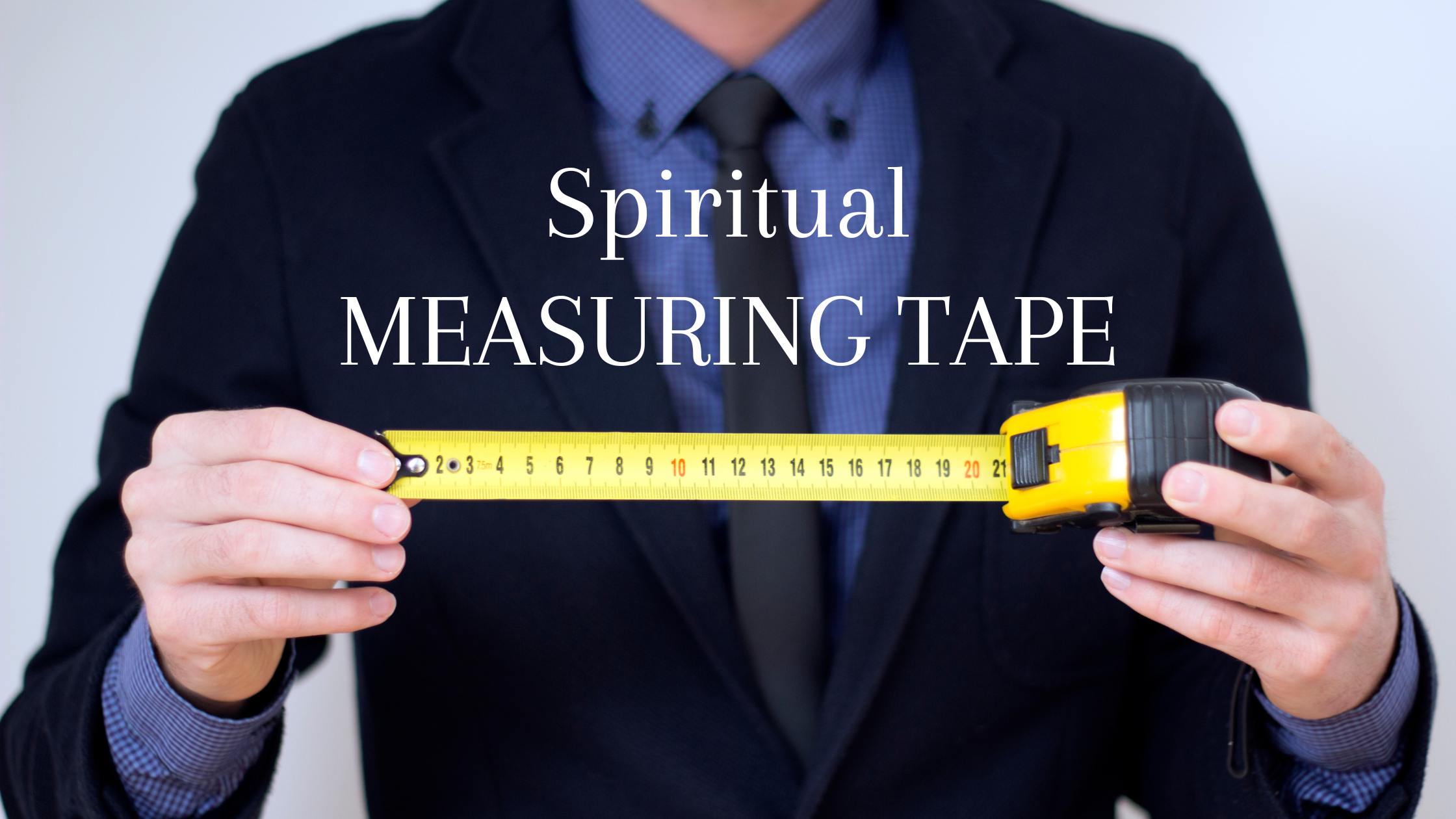
Think You Have a Pride Problem? This Is How It Affects Your Spiritual Life
in Sin
Pride. We all have it. In fact, it’s prideful to think that you don’t. And you don’t need to have a big, bad pride problem for it to affect you spiritually. If you let it creep in and settle, you’ll find it becomes a roadblock to God’s grace. Think about that - a roadblock to the free-flowing blessings and empowerment God longs to give you as His child.
We all need God’s grace more than we realize. It’s favor we don’t deserve in our imperfect humanity but that becomes accessible to us as His children, as the objects of His love.
Notice that we must access His grace: it’s not automatically bestowed in all its fullness. Rather, it’s something we can limit, stifle, or hinder. Our heart attitudes toward God cause His grace to either ebb or flow in our lives. Pride is one of several sinful attitudes that can dam the mighty rushing waters of His grace.
Let’s take a deeper look at pride and how we can cast it off to live in the reality of God’s free-flowing grace.

What Is Pride?
You can probably think of several synonyms like arrogance, haughtiness, conceit, and egotism. But how does God define it?
Romans 12:3 is perhaps the most revealing verse on the subject of pride:
For I say, through the grace given unto me, to every man that is among you, not to think of himself more highly than he ought to think; but to think soberly, according as God hath dealt to every man the measure of faith.
Pride is thinking more highly of yourself than you should and blinds you to your faults and weaknesses. You grow dependent on your own strengths and abilities, becoming self-reliant rather than God-dependent. Because of pride, you effectively exalt yourself over God, making it a form of idolatry. And yet, we’re all susceptible to it. Check out these very clear warnings from God’s word:
Every one that is proud in heart is an abomination to the Lord: though hand join in hand, he shall not be unpunished. Proverbs 16:5
The fear of the Lord is to hate evil: pride, and arrogancy, and the evil way, and the froward mouth, do I hate. Proverbs 8:13
It’s no wonder this sinful heart attitude cuts off the grace of God from our lives. And this particular roadblock manifests in several forms:
- Adulterous pride
- Defiant pride
- Defensive pride
- Self-righteous pride
Thinking this isn’t an area where you need growth? Don’t really have a pride problem? A closer look at these four variations of pride might change your mind.

Adulterous Pride
This type of pride often proceeds from a heart of covetousness, a willingness to exchange God’s authority in your life for a selfish, worldly, or wrong desire. It’s like “cheating” on God. “God, I’d rather have what I want apart from You than be satisfied with You.”
[Gasp!] Who would ever think such a thing much less say it. But it’s more about what we do than what we think or say. God knows what’s in our hearts whether we do or not. And a good, hard look at our choices and actions will reveal any adulterous pride.
James 4:17 gives eye-opening insight into the heart of adulterous pride:
From whence come wars and fightings among you? come they not hence, even of your lusts that war in your members?
Ye lust, and have not: ye kill, and desire to have, and cannot obtain: ye fight and war, yet ye have not, because ye ask not.
Ye ask, and receive not, because ye ask amiss, that ye may consume it upon your lusts.
Ye adulterers and adulteresses, know ye not that the friendship of the world is enmity with God? whosoever therefore will be a friend of the world is the enemy of God.
Do ye think that the scripture saith in vain, The spirit that dwelleth in us lusteth to envy?
But he giveth more grace. Wherefore he saith, God resisteth the proud, but giveth grace unto the humble.
Submit yourselves therefore to God. Resist the devil, and he will flee from you.
These verses describe someone who is fighting, striving, longing, and seeking to live for self. He’s consumed by what he wants and finally gives up on prayer since it didn’t get him what he wanted.
Living the Self-Life
When you succumb to adulterous pride, rather than depending on God to meet your needs and heart desires, you seek to meet those needs yourself. And this type of pride lusts after “worldly” things like status, possessions, power, prominence, wealth, reputation, and recognition. In selfishness, this prideful heart chooses worldly lusts (wrong desires) over God.
This is the “self-life” and not your “best life”. The temptation to live for yourself never really goes away. But a maturing Christian learns how to overcome through a deepening relationship with God that’s grounded in honesty and humility.
But the sad reality is that when we live in adulterous pride, we constantly strive for satisfaction that is never gained. We might get what we want but remain empty. And all along, we could have satisfied ourselves in the Lord, allowing Him to meet our needs and heart desires while enjoying a fullness only He can give.
But he giveth more grace. Wherefore he saith, God resisteth the proud, but giveth grace unto the humble. James 4:6
Are you bound by covetousness, lust, or temptation? Are you praying, or are you taking care of things yourself?
If you’re struggling to connect with God and are living according to your own agenda, you could have an adulterous pride problem. According to James 4:7, you can confess and submit yourself to God, allowing His grace to flow into your life. We’ll discuss more about how to do that later.

Defiant Pride
This is rebellious, manipulative, and abusive pride. It manifests in the way you respond to authority or exercise it. Defiant pride refuses to yield to the proper authority or submit to one another in brotherly love. And this type of pride makes you more likely to abuse power when you’re in a position of leadership.
Defiant pride is often a response to fear, worry, and anxiety. You’re tempted to believe that if you’re in command and can manipulate people and situations, you can accomplish your agenda and alleviate consuming worry. Defiant pride says that life is better when I’m pulling the strings or forcing my way.
But God has an entirely different take on influence, authority, and submission:
Feed the flock of God which is among you, taking the oversight thereof, not by constraint, but willingly; not for filthy lucre, but of a ready mind; 1 Peter 5:2
Submitting yourselves one to another in the fear of God. Ephesians 5:21
Saying, Father, if thou be willing, remove this cup from me: nevertheless not my will, but thine, be done. Luke 22:42
In these passages, we see the type of leader God has in mind, one who uses authority correctly, wisely, and lovingly. As children of God, parents, employees, etc., we’re all in a position of leadership or influence. We must be clothed in humility and submit to each other, using our authority as led by God. It’s about God’s will and not our agenda with its accompanying worry.
How do you pinpoint a defiant pride problem?
Are you carrying the burden of your cares and taking out your stress on those around you? Or are you trusting those burdens to God? Are you relying on God to handle matters, or do you believe you have to fix it yourself? When our pride keeps us from trusting God, it robs us of His grace.

Defensive Pride
This sinful heart attitude isn’t always easy to detect. It’s a spirit of pride that doesn’t want to receive correction or take responsibility for wrong attitudes or actions. It often stirs up bitterness against God or others and corrupts the heart.
Defensive pride says, “God, you let THAT occur in my life? I don’t know if I can trust you.” It’s as if you’re protecting yourself from God, disconnecting yourself from His loving heart and guiding hand. When this happens, you pridefully think you’re safer in your own hands.
According to Hebrews 12:11-15, God calls us to a different response. When correction comes into our lives, it’s best to receive it as a loving benefit:
Now no chastening for the present seemeth to be joyous, but grievous: nevertheless afterward it yieldeth the peaceable fruit of righteousness unto them which are exercised thereby. Hebrews 12:11
God calls us to trust His correcting hand, understanding that it strengthens our spirit and molds us into the image of Christ. The alternative is a prideful bitterness against God and others:
Looking diligently lest any man fail of the grace of God; lest any root of bitterness springing up trouble you, and thereby many be defiled; Hebrews 12:15
This failure, this bitterness, begins with defensive pride that makes self the protector and avenger rather than God. This robs us of God’s gracious work in our lives.

Self-Righteous Pride
How can the grace of God flow in our lives when we believe we’re good enough without Him? Self-righteous pride is religious pride that centers on our own good works, morality, and outward conformation to a religious standard.
This type of pride revels in its moral and religious achievements, believing that it comes from a fundamentally superior nature and is divorced from God’s grace. When you have a self-righteous pride problem, you take credit for the good in your life and are blind to your inner sinfulness or corrupted mind.
We see a clear example of this grace-limiting attitude in Matthew 18:23-35, which tells the story of the unmerciful servant. This man’s master forgave him for a large debt he couldn’t pay, and immediately went out and demanded a fellow servant pay the debt owed to him. When the indebted servant couldn’t pay, he had him thrown in jail.
In his self-righteous pride, the forgiven servant refused to extend the same grace that he had received. Though they shared the same trouble, the unmerciful servant believed himself morally superior to the indebted servant and lacked compassion for him.
While this might seem like an action that is far from us today, the attitude isn’t so remote. Do we measure ourselves against others? Do we carry a spiritual measuring tape to size up fellow believers? Are we blind to our own shortcomings and slow to extend compassion to those who are struggling?
May we be like the publican in Luke 18:9-14 who recognized his own sin and called out for God’s mercy. The alternative is self-righteous pride:
And he spake this parable unto certain which trusted in themselves that they were righteous, and despised others: Luke 18:9
May we cast off self-righteous pride and allow God’s grace to flow freely in our lives.

Draw Nearer to God
If you’ve welcomed Jesus Christ into your life as your Savior, then you’re already enjoying His saving grace and other blessings. But in 2 Peter 3:18, God calls us to grow in grace and knowledge. Growing in grace means casting off hindrances and cultivating Christ-like characteristics.
Christlikeness, or becoming more like your Savior, requires communion (intimate communication), closeness, and receiving of His fullness. The more you have of Jesus, the more you know Him, and the more grace and peace are multiplied in your life. As you draw nearer to the Lord, there is no room for these roadblocks to grace, and they become glaringly apparent.
Our God freely chooses to bless, pardon, give, and empower. But are you a grace-filled person? Are you walking in the power of God? How much do you need Him? Or perhaps the better question is, how much do you recognize your need for Him?
A little self-examination and honest communion with God will reveal any pride problem that may be hindering God’s grace in your life.

Flooded with God’s Grace
It’s true. He desires to lavish His children with love, provision, direction, and purpose. He longs to meet the desires of your heart. But we must submit to Him and allow Him to break down each dam along the river of His grace. We must confess those sinful attitudes that block His divine favor. We must see our need for Him.
How much do you need His grace?
Without His favor, we’re living in a “dry and thirsty land, where no water is” (Psalm 63:1). But when we cast off hindrances, His grace is unleashed in our lives:
When the poor and needy seek water, and there is none, and their tongue faileth for thirst, I the Lord will hear them, I the God of Israel will not forsake them.
I will open rivers in high places, and fountains in the midst of the valleys: I will make the wilderness a pool of water, and the dry land springs of water.
I will plant in the wilderness the cedar, the shittah tree, and the myrtle, and the oil tree; I will set in the desert the fir tree, and the pine, and the box tree together:
That they may see, and know, and consider, and understand together, that the hand of the Lord hath done this, and the Holy One of Israel hath created it. Isaiah 41:17-20
This is the God of Grace. This is the God we serve.
Adapted from Pastor James Wooten’s 11/27/22 sermon, Growing in Grace and Knowledge.



